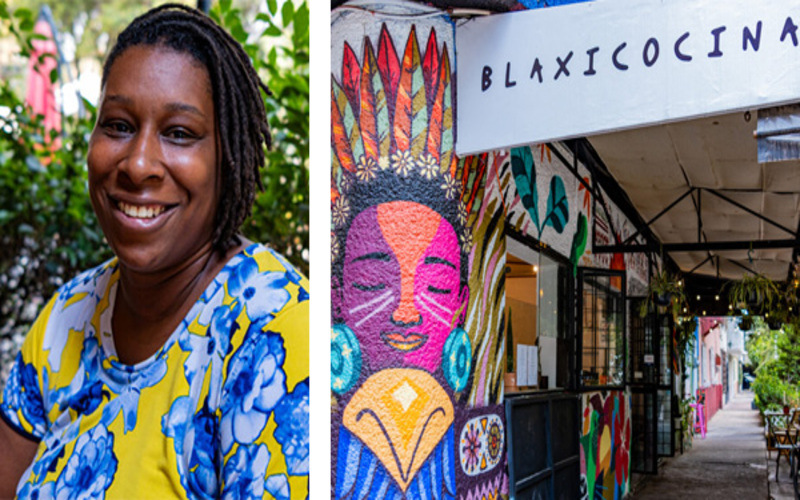African-American female entrepreneur Tiara Darnell of Washington, DC, founded Blaxicocina, the first and only successful soul food restaurant in Mexico City, home to more than 16 million people. Tiara’s delectable concoctions are winning over inquisitive locals and Black Americans with a culinary adventure spanning countries and generations.
Tiara claims that when she landed in Mexico City in 2021, she discovered that the place didn’t have as much access to her favorite Old Bay seasoning as it had in her own Maryland. She claimed it motivated her to open Blaxicocina, a family-fare restaurant.
She turned to an unexpected source—her mother—to bring the tastes of home to Blaxicocina. She purchased her bulk-sized containers from Restaurant Depot, which satisfied her desire for, among other things, Old Bay seasoned fries. In addition, the restaurant serves fried chicken, cornbread, carrot cake, and sweet tea, all of which are representative of soul cuisine.
But cooking real soul cuisine in Mexico presented special difficulties. Traditional recipes’ essential ingredients were difficult to come by. She had to patiently make the cornmeal from scratch for her cornbread and the coating for fried green tomatoes. By working with local farmers, she also stimulated the development of collard greens, a mainstay of soul cuisine uncommon in Mexico.
Beyond its function as a restaurant, Blaxicocina serves as the center of a burgeoning Black American community in Mexico City. Even the “Blaxit” movement, which advocates leaving the United States to pursue a better life elsewhere, has connections to the eatery. Tiara chose it because she wanted a better quality of life and to avoid institutional bigotry.
The inclusive stance Tiara takes goes beyond her food. Working with Mexican suppliers, employees, and contractors is part of her effort to become a part of the neighborhood. She aims to promote mutual respect and cultural exchange rather than exploit the community.
“Mexico City unmistakably has a familiar vibe. I live in a pretty wonderful neighborhood. I now consider some of my friends to be family, and I just feel much more culturally and socially connected here than I ever did in the United States,” she added.

